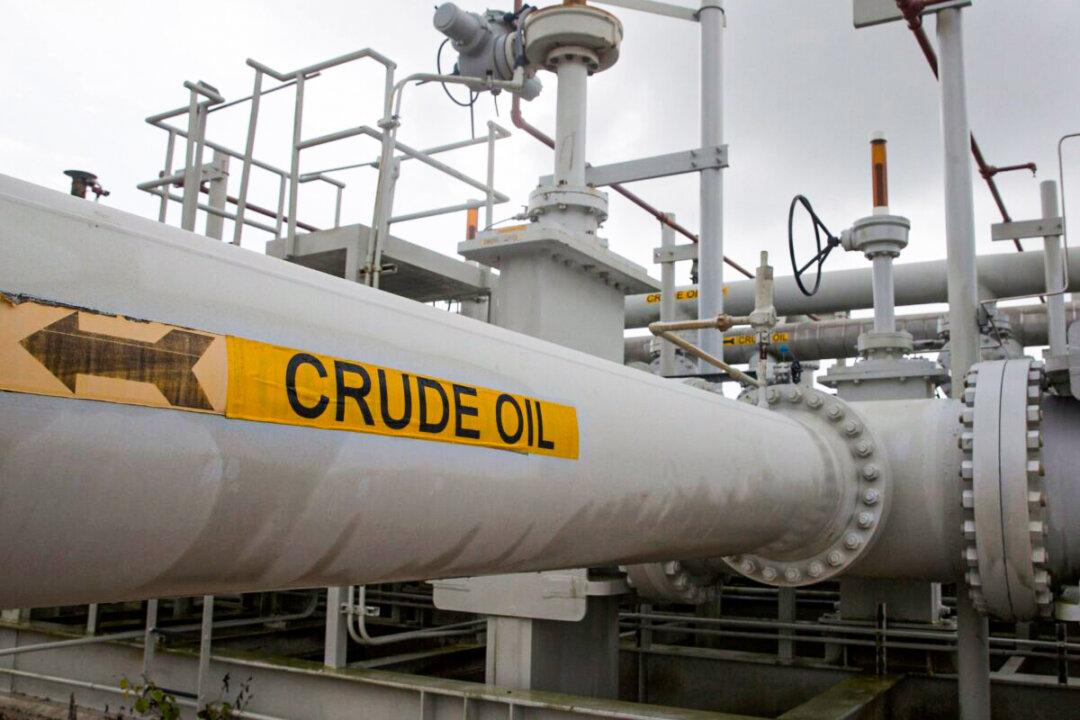LONDON—Oil futures fell by about 1 percent on Thursday, extending losses from the previous day, as a surprise jump in U.S. crude stocks weighed on the market along with fears of a recession that were heightened by disappointing U.S. retail sales and output data.
Brent crude futures lost 65 cents, or 0.8 percent, to $84.33 a barrel at 1030 GMT, after earlier easing to $83.76. U.S. West Texas Intermediate (WTI) crude futures declined 79 cents, or 1 percent, to $78.69 a barrel. It earlier fell to a low of $78.13.





